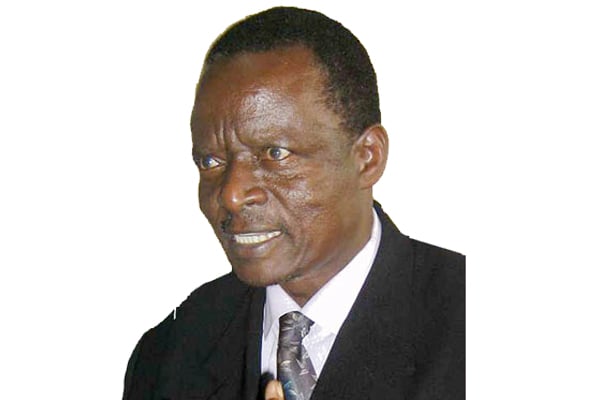Prime
Case against ethnic federalism: A response to Dr Kabumba

Moses Khisa
What you need to know:
- There is no guarantee that if they got more as ethnic federal units, elites at that level wouldn’t steal just as those at the centre do.
Writing in The Observer last week, Dr Busingye Kabumba of Makerere University’s Law School, attempted to make the case for ethnic federal system in Uganda. The argument is slippery, quite historical and sits on a very shaky foundation, which prompted Dr Kabumba to hasten to underline ‘ethnic communities as political units rather than exclusionary tribes’.
Dr Kabumba deserves to be saluted as one of the few truly citizen intellectuals, consistently engaged in the public square to offer critical interventions on key national and international questions of the day. Why should federal political units be based on ethnic markers, not other forms of identity markers, organising or socioe-conomic bases?
Dr Kabumba evokes the notion of autochthony, essentially referring to indigenous or native roots, to argue that ethnic federal units would represent genuine and organic blocks through which real accountability and good governance might be achieved because Ugandans have attachment to political communities that preceded the Ugandan state. From the outset, he refers to a series of articles he published last year on ethnic federalism, which unfortunately I did not get the chance to read.
However, what compelled him to revisit the subject is the litany of damning revelations on Twitter (X) about gross financial abuse in parliament at the behest of Speaker Anita Among and involving opposition leaders. In a rather rushed, somewhat reductionist conclusion, Dr Kabumba asserts that the solution to elite corruption at the centre is subnational autonomy through ethnic federalism.
Dr Kabumba appears fully convinced not only about the viability but also the inevitability of ethnic federalism, thus makes a startling statement: ‘I have absolutely no doubt in my mind that by 2034 – at the very latest – Uganda will be run on a federal model, based in large part (if not wholly) on ethnicity’.
Is there something he is privy too that other Ugandans like me aren’t or is he a seer at work? In pushing back ethnic federalism, at least as articulated by Dr Kabumba, let me make three basic arguments. First, to mark out an ethnic group as a political unit is inherently slippery.
Such a unit cannot be reduced to a single or exclusive group, certainly not in the Ugandan context, something that Dr Kabumba concedes yet appears to sweep aside in a sleight of hand. The precolonial units that preceded the Ugandan state were never made up of singular ethnic groups, rather were amalgamations under a dominant ethnic group. This was no different from what became Uganda, only that the former were smaller units involving fewer ethnicities and sub-ethnic groups. Dr Kabumba tries hard, albeit in vein, to emphasise that ethnic federal units shouldn’t be thought of as ethnically congruent, meaning not some kind of ‘tribal homelands’ exclusive to one kindred group.
In practice, however, given his emphasis on nativity, this is in fact what it would boil down to as witnessed under decentralisation. Every new district triggers fresh demands from another supposed ethnic or sub-ethnic community wanting their own enclave because of feeling marginalised or not well-represented in the district they belong to.
Second, Uganda’s decentralisation is in practice patently ethnic-based, although not explicitly stated, and its implementation hardly bears out Dr Kabumba’s faith in ethnic federal units as the bulwark against corruption and financial malfeasance.
If we went back to precolonial Bunyoro or Tooro as a federal political unit today, wouldn’t a Musongora ‘governor’ enjoy support and spirited public defence from ‘his people’ if he were to come up against scrutiny over abuse of office and misuse of funds? Not a lot of money goes to the districts, let alone sub-counties, and the rulers at the centre have gradually recentralised power away from subnational units, but the little that goes to local governments is blatantly stolen with little scrutiny.
There is no guarantee that if they got more as ethnic federal units, elites at that level wouldn’t steal just as those at the centre do. Last, there is a case to be made for federalism in Uganda, to which we can return in future, but it is no panacea and it is difficult to see how the ethnic model is compelling.
There are comparative lessons from elsewhere on why ethnic federalism is arguably not a particularly good idea. Ethiopia is perhaps the best example where a patchy experiment and hotchpotch of ethnolinguistic federalism has unravelled with tragic outcomes: a two-year brutal civil war in the Tigray region and similarly devastating armed conflict in Amhara and Oromo federal (ethnic) regional states. To which we shall return.




